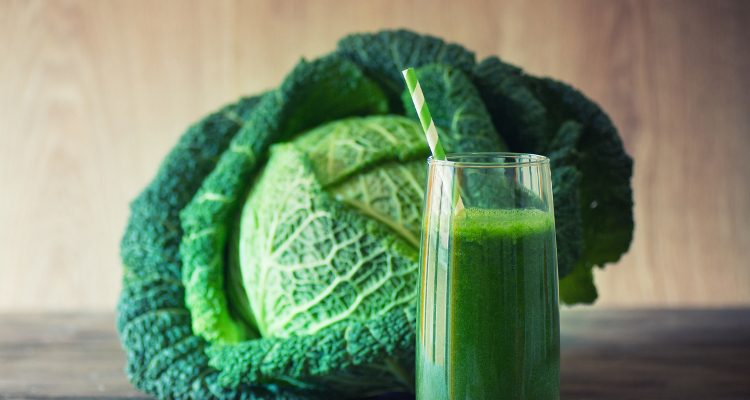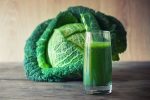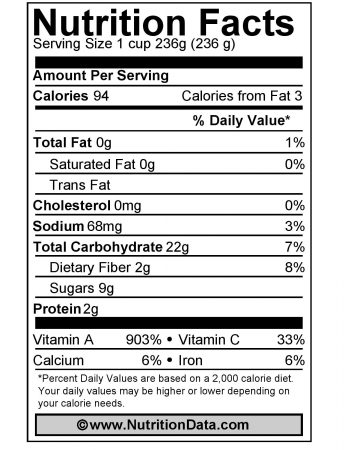
We’re all looking for ways to get healthy: exercise, eating right, drinking the right things. With this exploration of health and health food, sometimes you have to go into some unexpected areas. Like cabbage juice.
It doesn’t sound like the most pleasant of things in the world, but cabbage juice has some surprising benefits.
An Easy Way to Make Cabbage Juice
Unlike veggies such as spinach, carrots, and tomatoes, you would perhaps not consider cabbage for juice purposes, but with the health benefits that we’ve shown you, you’re probably now giving it some thought. With that in mind, we’ve got a cabbage juice recipe so you can see how easy it is to make cabbage juice at home.
Ingredients:
- A small to medium-sized cabbage
- Water
You should choose a small to medium-sized cabbage for juice simply because it will taste better.
Instructions:
Wash and cut the cabbage into the appropriate size. For juicers, make sure the cabbage is cut so it will fit within the juicer. Add the cabbage to a blender or juicer. Add filtered water to the cabbage. If it’s just from the tap, boil the water for 30 minutes before adding it to the cabbage.
Blend the cabbage and the water. Start at a low setting, and then crank it up for a few seconds. Pour the blender or juicer’s contents into a sealed jar. Seal the jar and let it ferment for at least three days at room temperature.
After three days, strain the contents of the jar and place the juice in another jar or serving glass. Chill in the fridge and serve.
Nutritional Contents of a Raw Cabbage
Cabbage is a vegetable rich in sulfur compounds and belongs to the Brassicaceae family of the plant kingdom; it shares the family with many other cruciferous veggies such as cauliflower, broccoli, turnip, Brussels sprouts, and so on.
According to SELF Nutrition Data, cabbage is low in cholesterol and saturated fats and is a good source of vitamins C, K, B6, and folate.
It has a lot of dietary fiber and a sufficient amount of protein. It has a decent quantity of minerals such as potassium, calcium, and phosphorus. It has a good amount of water content and is rich in omega-6 fatty acids.
Credit:Nutrition data/Carrot Juice Nutritional
The nutritional statistics for cabbage juice are very nominal. For one cup of raw cabbage juice, there are no fats and there is conflicting information on how much vitamin C may be contained.
Cabbage itself is an excellent source of vitamin C, but the juice may not be as vitamin-rich as some of it may be lost in the juicing process. In terms of carbs, there are 3 grams of total carbs, 2 grams of sugars, and 1 gram of protein.
At first glance, this doesn’t seem like the greatest thing in the world as there’s not a lot of obvious nutritional value. Where cabbage juice makes up for its lack of obvious nutritional value is in the multitude of health benefits that come along with drinking this concoction.
How Cabbage Juice Benefits Our Health
Many readers may balk at drinking cabbage juice. If you’ve ever smelled boiling or cooking cabbage, it’s pretty understandable. However, cabbage juice has a lot of health benefits that far outweigh the thoughts of stinky boiling cabbage. For example:
1. Cancer Fighter
Cabbage juice contains good amounts isocyanate and sulforaphane. The isocyanate is known for preventing breast cancer, stomach cancer, prostate cancer, colon cancer, and lung cancer. Sulforaphane is a carcinogen blocker. Patients recovering from cancer treatment are often told to drink cabbage juice because of this benefit.
2. Ulcer Control
As it turns out, cabbage juice is great for peptic ulcers. Cabbage juice contains glutamine, a type of amino acid that helps promote cellular growth within the stomach. Cabbage juice and the glutamine that it contains may help peptic ulcers to repair themselves.
3. Weight Control
One of the great benefits of cabbage juice is for those of us who are trying to lose weight. As noted above, cabbage juice works really well with the digestive system and helps turn sugars and carbs into energy as opposed to fat.
4. Heart Disease
Cabbage and cabbage juice are also known to be good for your heart. Both are low in cholesterol. Cabbage juice has a good amount of omega-6 fatty acids. These if eaten in moderation can be good for your heart.
Until recently, these were believed to block arteries and enhance the risk of heart disease; however, the American Heart Association has now ruled that out after reviewing the evidence of the same. According to AHA, people should consume 5-10% of the daily calorie intake from omega-6 fatty acids.
5. Reducing Anemia
Anemia occurs when there is a decrease in red blood cells (or hemoglobin) in the blood stream. This can lead to consistent feelings of being tired or exhausted as well as fainting spells and other worse things.
The folic acid present in cabbage and cabbage juice can help to generate new red blood cells which are vital to those suffering from anemia. Cabbage also has a good amount of vitamin C which helps in the absorption of iron into the blood.
So, if a patient is on iron supplements or has been recommended iron-rich foods to increase hemoglobin, they can have cabbage, citrus fruits, or other food sources of vitamin C.
6. Skin Care
Cabbage is a decent source of phytochemicals such as alpha & beta carotene and retinol equivalent (RE) of vitamin A. These nutrients have antioxidant properties and they destroy the free radicals harmful for skin cells.
This prolongs the aging process, making the skin soft and younger looking. Although there are many antioxidant creams and anti-aging skincare products available in the market, eating the right kinds of foods like cabbage is always a good idea.
7. May Help To Prevent Hair Loss
One of the things that cabbage and cabbage juice have a large amount of is sulfur. Sulfur has been shown to be effective in not only preventing hair loss but also keeping hair strong. There are numerous ways to get sulfur (hair products, etc.) but cabbage juice is one of the easiest and quickest ways to get the sulfur you need for better hair.
8. Lowering Your Bad Cholesterol
Bad cholesterol can lead to all sorts of health issues including many that have to do with the heart. Cabbage juice can lessen bad cholesterol by lowering the low-density lipoprotein within the blood stream. Lower bad cholesterol means less risk of multiple diseases. Bad cholesterol can be a factor in everything from strokes to heart disease.
9. It’s Anti-inflammatory
Cabbage happens to have several things that make it a nice anti-inflammatory, which means cabbage juice also has those properties. For example, cabbage and cabbage juice contain selenium, which is known to be an anti-inflammatory agent and useful against the symptoms of arthritis.
And that’s not all. Cabbage juice may be able to help curb respiratory issues, cataracts, and allergies, and foster bone development. So while the thought of taking a cabbage and turning it into a cold drink may not be the first thing on your mind, the health benefits may be worth it.
Side Effects of Cabbage Juice
While there are a ton of benefits to cabbage juice, there are a few drawbacks and side effects that you should be aware of. First, like other vegetables in the same family, cabbage can cause excess gas.
It actually aids the digestion process; however, it may also cause diarrhea in some people. If you are on blood thinners, cabbage juice may not be a good idea as it may interfere with your medication.
You should not consume cabbage and cabbage juice if you have hypothyroidism. In case of this thyroid condition, it is not recommended to consume any vegetables with sulfur compounds such as cabbage, cauliflower, broccoli, and so on. Cabbage juice is also not recommended for women who are pregnant or nursing, as the fetus may suffer from colic or other digestion-related issues.
Worth a Shot
Let’s be honest here. The benefits of cabbage and cabbage juice far outweigh the bad stuff that we may associate with cabbage juice, and it’s very simple to make. Cabbage also tends to be fairly cheap, so on the chance that you try it and absolutely hate it, you really aren’t out much in the way of dollars.
Weigh the pros and cons and give it a shot. Just ensure that you do not have any of the health conditions we’ve mentioned. You might be surprised at how much you like it or how good it ends up making you feel.
Related:
Sources:
Pandey, V. “Top 10 Health benefits of Cabbage Juice”, Build Healthy Body, December 19, 2014. http://www.buildhealthybody.com/top-10-health-benefits-of-cabbage-juice/
“Health Benefits of Cabbage Juice”, Health Benefits Times, https://www.healthbenefitstimes.com/health-benefits-of-cabbage-juice/
Allen, S. “Negative Effects of Cabbage” SFGate, http://healthyeating.sfgate.com/negative-effects-cabbage-2960.html


















